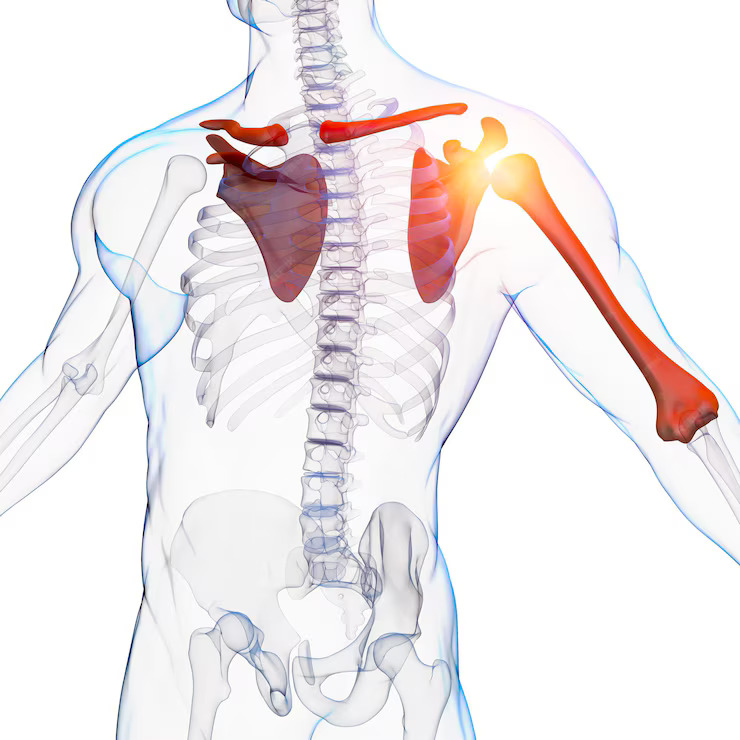How to Choose a Back Pain Specialist in Shahdara
Back pain is one of the most common ailments affecting millions of people worldwide. Whether it is caused by poor posture, injuries, muscle strain, or more chronic conditions like sciatica or herniated discs, finding the right treatment is crucial to alleviating pain and restoring quality of life. If you reside in Shahdara and are suffering from back pain, you may be wondering how to choose the best back pain specialist for your needs. This article will guide you through the steps to select a qualified Back Pain Specialist in Shahdara to help you manage and treat your condition effectively.
Understanding the Need for a Specialist
Back pain can vary from mild discomfort to severe, debilitating pain that interferes with daily activities. While general physicians can often provide basic guidance and medications for back pain, chronic or severe cases require specialized care. A back pain specialist is a medical professional with expertise in diagnosing and treating conditions related to the spine, muscles, and nerves that cause back pain.
In Shahdara, a densely populated area of Delhi, there are numerous medical professionals and clinics. However, not all are specialized in dealing with back pain. The challenge lies in finding a specialist who has the right qualifications, experience, and treatment approach tailored to your needs.
Step 1: Identify the Type of Specialist You Need
When choosing a Back Pain Specialist in Shahdara, it’s important to understand the types of specialists who treat back pain. The following are some common types of back pain specialists you may encounter:
- Orthopedic Surgeons: These doctors specialize in the musculoskeletal system, including bones, joints, ligaments, tendons, and muscles. They are ideal for treating conditions such as fractures, arthritis, and spinal deformities.
- Neurosurgeons: Neurosurgeons specialize in the nervous system, including the brain and spine. If your back pain is related to issues with nerves or requires surgery, a neurosurgeon might be the best option.
- Physiatrists (Physical Medicine and Rehabilitation Specialists): These specialists focus on non-surgical treatments for musculoskeletal and nerve issues. They may recommend physical therapy, pain management strategies, or injections.
- Chiropractors: Chiropractors provide non-surgical treatments by adjusting and manipulating the spine. This option may be suitable for mild to moderate back pain.
- Pain Management Specialists: These doctors specialize in managing chronic pain through medications, injections, physical therapy, and other non-surgical methods.
The type of specialist you need depends on your specific condition and whether surgery or non-surgical treatment is recommended.
Step 2: Check Credentials and Qualifications
Once you have identified the type of back pain specialist you need, the next step is to evaluate their credentials. Here are some things to look for:
- Education and Training: Ensure that the specialist has completed medical school, specialized training in their field, and any necessary certifications.
- Board Certification: Check if the specialist is board-certified in their area of expertise, such as orthopedic surgery, neurosurgery, or pain management. Board certification indicates that they have met rigorous standards in their field.
- Experience: The more experience a specialist has, particularly with your specific condition, the better the chances of a successful outcome. Ask about the number of cases they’ve handled and their success rates.
Step 3: Consider the Treatment Options Offered
When choosing a Back Pain Specialist in Shahdara, it’s important to know what treatments they offer. Some specialists focus on non-surgical treatments, while others are more inclined to recommend surgery.
- Non-Surgical Treatments: Look for specialists who offer a variety of non-invasive treatments, such as physical therapy, chiropractic care, acupuncture, medication management, and injections. Many back pain issues can be effectively treated without surgery.
- Minimally Invasive Surgery: If surgery is necessary, determine if the specialist offers minimally invasive options. These procedures often involve smaller incisions, less pain, and faster recovery times compared to traditional surgery.
- Traditional Surgery: For more severe conditions such as herniated discs or spinal stenosis, traditional open surgery may be required. Ensure the specialist has extensive experience with the type of surgery you may need.
It’s essential to feel comfortable with the treatment options your specialist recommends. Ask them to explain the pros and cons of each approach and why they believe a particular treatment is best for you.
Step 4: Research the Specialist’s Reputation
One of the best ways to gauge the quality of a back pain specialist is by researching their reputation. This can be done through several methods:
- Online Reviews: Look for patient reviews and testimonials online. These can give you a sense of how the specialist interacts with patients, the quality of care provided, and overall patient satisfaction.
- Referrals: Ask your general physician for recommendations or talk to friends or family members who have received treatment for back pain.
- Hospital Affiliations: Check if the specialist is affiliated with reputable hospitals or clinics. Specialists who work at well-known institutions are often held to higher standards.
For instance, PainX is a well-regarded clinic offering specialized pain management services in Delhi, including Shahdara. They have experienced back pain specialists who can help you manage your condition with various treatment options.
Step 5: Evaluate Communication and Comfort
Effective communication is critical when working with a specialist. You want a back pain specialist who listens to your concerns, answers your questions, and explains the treatment plan clearly. During your initial consultation, pay attention to the following:
- Listening Skills: Does the specialist take the time to listen to your symptoms and concerns? Are they patient and attentive?
- Clear Explanations: Does the specialist explain your condition and the proposed treatments in a way that you understand? Do they provide enough information for you to make an informed decision?
- Comfort Level: Do you feel at ease around the expert? Trust your instincts; if something feels off or you don’t feel confident in their care, consider looking for another option.
Step 6: Check Insurance Coverage and Costs
Before finalizing your decision, make sure the back pain specialist accepts your insurance. Medical care can be expensive, especially if you require surgery or long-term treatment. Understanding your insurance coverage and out-of-pocket costs will help you avoid surprises down the road.
In Shahdara, many specialists work with a variety of insurance providers, so check with the clinic to ensure they accept your plan. If you don’t have insurance, inquire about payment plans or other financial options that may be available.
Conclusion
Choosing the right Back Pain Specialist in Shahdara is a critical step in managing and treating your back pain effectively. Start by identifying the type of specialist you need, checking credentials and experience, considering treatment options, and researching the specialist’s reputation. Equally important is finding a specialist who communicates well, makes you feel comfortable, and fits within your insurance or budget







